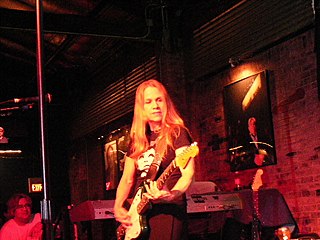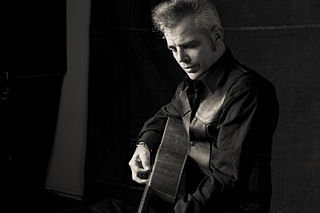Ein Zitat von Howard Schultz
Und das, obwohl sich Starbucks zu einem großen Unternehmen entwickelt hat. Wir haben in unseren Filialen schon immer Musik gespielt und immer als Gelegenheit gedient, in unseren Filialen für Stimmung zu sorgen. Und die Kunden fragten: „Welchen Song spielst du und kann ich den kaufen?“ . Und wir sagten „Nein.“ Und das war sozusagen der Auslöser dafür, dass ich anfing, mich mit Musik zu beschäftigen. Wir begannen mit unseren eigenen Compilations und nach deren Erfolg. Wir hatten den Mut zu sagen: „Lasst uns unsere eigene Platte produzieren.“ und die erste Platte war mit Ray Charles, bevor er leider verstarb.
Verwandte Zitate
Plattenläden sind das Rückgrat der Musikkultur. Hier knüpfen wir Kontakte, stöbern herum und finden neue Lieder, die wir lieben. Die Geschäfte, deren Mitarbeiter für die Musik leben, haben aufregende neue Dinge schneller und wirkungsvoller verbreitet als das Radio oder die Presse. Jeder Künstler, der die wunderbaren Ma- und Pa-Plattenläden in ganz Amerika nicht unterstützt, trägt zu unserem eigenen Aussterben bei.
Big Box war einfach nicht unsere Stärke. Wir sind ein Fachgeschäft für Herren- und Jungenbekleidung, das sich auf die Bereitstellung hochwertiger Kleidung mit maßgeschneiderter Maßanfertigung konzentriert. Unser Kunde ist König. Als wir sieben Filialen hatten, wurde die Kommunikation zwischen den Filialen und mit unseren Kunden immer unzusammenhängender. Wir begannen, die großartige familiäre „Kameradschaft“ zu verlieren, die im Wesentlichen der Schlüssel zu unserem Erfolg ist.
Plattenläden sind die angesagtesten Bibliotheken. In diesen müden, alten Tagen der homogenisierten Unterhaltung, in denen ein Großteil der Kunst unserer Gesellschaft kulminiert, reduziert und in Massenproduktion hergestellt wird, gibt es im Aufstieg der indischen Plattenläden ein leuchtendes Juwel. In einen Plattenladen zu gehen ist für mich wie eine kleine Schatzsuche, auf die dich niemand außer dir selbst mitnehmen kann. Es macht Spaß, sich umzuschauen und auch die anderen Käufer zu sehen ... völlig vertieft in ihr eigenes Abenteuer, in Erwartung der Belohnung, herzzerreißende, seelenerfüllende und freudige Musik zu machen, die vielleicht nur einen Mülleimer oder einen Blick entfernt liegt.
Meine Musik war schon immer eine Art Zwischenkategorie. Manchmal haben Plattenläden – damals, als es noch Plattenläden gab – meine Platten in die Country-Sektion gebracht, aber andere Plattenläden haben meine Platten in die Pop- oder sogar Rock-Sektion gebracht. Solange es irgendwo im Laden ist, bin ich damit einverstanden.
Meine Musik bewegte sich schon immer irgendwo zwischen den Kategorien. Manchmal haben Plattenläden – damals, als es noch Plattenläden gab – meine Platten in die Country-Sektion gebracht, aber andere Plattenläden haben meine Platten in die Pop- oder sogar Rock-Sektion gebracht. Solange es irgendwo im Laden ist, bin ich damit einverstanden.
Nach 12 intensiven Jahren der Rockmusik war ich froh, nicht mehr eine Platte aufnehmen und auf Tour gehen zu müssen. Als ich es tat, wollte ich mich inspiriert fühlen. Nach einer Weile hatte ich endlich genug davon, an der Musik anderer Leute zu arbeiten, und begann, mir selbst Musik auszudenken, und sagte: „Das könnte etwas für mich sein.“
Nach 12 intensiven Jahren der Rockmusik war ich froh, nicht mehr eine Platte aufnehmen und auf Tour gehen zu müssen. Als ich es tat, wollte ich mich inspiriert fühlen. Nach einer Weile hatte ich endlich genug davon, an der Musik anderer Leute zu arbeiten, und begann, mir selbst Musik auszudenken, und sagte: „Das könnte etwas für mich sein.“
Die Gründung meines eigenen Unternehmens war in vielerlei Hinsicht eine Art Weckruf. Ich musste jede Woche eine Gehaltsabrechnung erfüllen, und wir mussten die Kunden zufriedenstellen, und wir hatten Konkurrenten, mit denen wir konkurrieren mussten, damit diese Kunden in unsere Geschäfte kamen, und wir mussten mit anderen Arbeitgebern um unsere Mitarbeiter konkurrieren.
Die einzige Konstante in diesem sich ständig verändernden Musikgeschäft sind die herzlichen und bodenständigen Indie-Plattenläden, von denen begeisterte Musikfans und Künstler gleichermaßen wissen, dass sie darauf zählen können, dass die Musik vor Ort weiter gedeiht. Ich reise um die ganze Welt und oft sind es diese Indie-Plattenläden, die über den Erfolg oder Misserfolg eines Marktes entscheiden. Die Leute wollen immer ein „Album“ haben, das sie behalten, und nicht nur, dass sie es nur heruntergeladen haben, und Indies erfüllen dieses Bedürfnis und noch mehr.
Offenbar wollten Plattenfirmen, dass Bands kreativ sind, weil sie nicht wussten, wie man Underground-Musik produziert. Wir könnten unser eigenes Ding machen und in unserem eigenen Tempo vorgehen. Aber das änderte sich, als große Labels begannen, Bands zu wollen, die 7 Millionen Platten verkaufen würden.
Als Radiosender anfingen, Musik zu spielen, begannen die Plattenfirmen, die Radiosender zu verklagen. Sie dachten, die Leute könnten jetzt umsonst Musik hören, wer würde dann schon eine Platte in einem Plattenladen kaufen wollen? Aber ich denke, wir sind uns alle einig, dass Radiosender eine gute Sache sind.

































